What is Psoriasis?
Page Contents
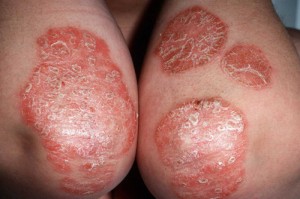 Picture 1 – Psoriasis Picture
Picture 1 – Psoriasis Picture
Source – galderma
Psoriasis is a non-contagious, chronic, autoimmune skin disease. It is characterized by the appearance of white and red scaly patches on the surface of the skin. It is of five different types, namely guttate, plaque, erythrodermic and pustular. The exact cause behind the occurrence of psoriasis is still a mystery for scientists in the field of medical science. However, the most considered cause is the sending out of faulty signals by the immune system leading to rapid skin cell reproduction. The common areas that are affected by this disease are the skin surface belonging to the knees, the scalp and the elbows. Owing to the nature of recurrence of this disease, psoriasis treatments poses a serious challenge to physicians and doctors.
Treatment for Psoriasis
Treatments for psoriasis depend on certain criteria such as the type of psoriasis, the location of occurrence, and the extent & severity of the disease. Besides these, several other factors such as the age of the patient, sex, the lifestyle, the risk attitude as well as the presence of several other diseases in addition to psoriasis, i.e., the comorbidities are all taken into consideration for the effective treatment of this disease. Usually, medications which can adversely affect the body to the least possible extent are prescribed at the initial stage. Medications are prescribed on the basis of the severity of the disease. The psoriasis treatment ladder decides the kind of medications to be prescribed to the ailing patient. If the disease is too severe to respond to normal medications, then medications with a significant amount of toxicity are prescribed.
There are various kinds of treatments available to get relief from psoriasis. They can be categorized as the following:-
Psoriasis Topical Treatment
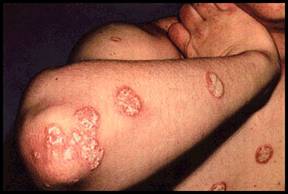
Picrure 2 – Psoriasis
Source – vanderbilt
This is the first kind of treatment that is prescribed in case of psoriasis. It is usually in the form of medicated ointments and creams that is directly applied to psoriatic plaques on the skin. It helps in normalizing skin cell production, reducing the inflammation of the skin, and removing and clearing off the plaques from the surface of the skin.
There are various kinds of topical treatments for psoriasis, all of which have the potential to effectively treat and cure psoriasis. Most of the medications used and prescribed in case of topical treatment for psoriasis are available over the counter (OTC). However there are others as well which are not easily available as they require the reference or the prescription of a registered medical practitioner or a doctor. The logic behind the requirement of a prescription to buy such kind of medicines or steroids is that they may have harmful side effects which is in the knowledge of the patient being administered the same.
Over The Counter Psoriasis Treatment
The OTC topicals are available in a variety of forms such as salicylic acid, active ingredients and coal tar from the local drugstores, pharmacies, or directly from the place of manufacture. All such OTC drugs and medicines are authenticated and approved by the Federal Agency in the Department for Health and Human Services (FDA). In order to understand the nature, effectiveness as well as the harmful effects of such medications, one must treat them individually.
Salicylic Acid
Salicylic acid acts as a peeling or keratolytic agent not only for psoriasis but for all other skin problems and diseases. As such it helps the outer damaged layer of the skin affected by psoriasis to peel off. Actually, salicylic acid helps to lift the scales of the skin, helps in their softening and subsequent removal.
However, using salicylic acid to treat psoriasis is not without certain disadvantages. Salicylic acid if applied over a large portion of the skin for a long period of time may cause skin irritation. Besides this, it may lead to temporary hair loss by weakening the shafts of the hair and thereby breaking them.
Coal Tar
Coal tar that is derived from wood and coal has a number of medicinal qualities by virtue of which it is also used for treating psoriasis. In fact, it is the most commonly used treatment for psoriasis. Its qualities for treating psoriasis may be similar to salicylic acid. It also helps to reduce the growth pace of the skin cells and prevents their excessive reproduction. This helps the restoration of the skin appearance to its original form by reducing the inflammation, the itching and the scaling of the skin that is caused due to psoriasis.
Before using tar products such as ointments and creams, one must look for the concentration of tar that they contain. This is for the reason that the higher the concentration of tar, the more powerful shall be its effects. Usually a product with a higher concentration of tar is supposed to have more potential to treat psoriasis.
However, a product with a very high concentration of coal tar may have certain harmful effects. It may cause excessive irritation of the skin, as well as its reddening and subsequent drying up. Tar also makes the skin too very sensitive to sunlight and one has to use sunscreen in order to prevent getting sunburned. It is also difficult for patients to maintain the regular application of such medications owing to the potential of coal tar to stain clothes and bed linen as well as the strong odor that it produces on application. Although it’s still a mystery for scientists to detect the carcinogenic effects of coal tar, yet recent studies have indicated that some chemicals in coal tar may cause cancer if used in a very high quantity on a regular basis. The permissible limit of coal tar concentration useful for the treatment of psoriasis has been set by the FDA between 0.5-5 percent.
Other OTC Psoriasis Treatment
The other topical treatments for psoriasis are rich in natural ingredients such as jojoba, Vera, zinc pyrithione, capsaicin, etc. which help in the moisturization of the skin. By removing off the psoriasis scales, it helps in the smoothening of the skin and provides relief from itching. But the effectiveness of such products has still not been proved by medical scientists for the treatment of psoriasis. So one must be aware of the possible side effects of such ingredients which may cause allergies and irritation. The treatment for inverse psoriasis is the application of a liquid called Castedem on the skin which helps in the drying up of moist lesions on the body. Some of the most commonly prescribed other topical treatments are:-
Moisturizers
Moisturization of the skin is an essential requirement for the treatment of psoriasis as it helps in reducing the reddening and the itching of the skin, thereby leading to the proper healing of the disease. This kind of treatment is based on the application of creams and ointments on the area affected so as to lubricate the skin and prevent it from drying. Lubrication helps to lock the water within the openings of the skin.
Bath Solutions
Keeping oneself hygienic by taking a bath regularly is necessary for the treatment of any disease. In case of psoriasis, one must add Epsom or Dead Sea salts, oil or oiled oatmeal in water to remove psoriasis scales from the skin and help soothe itching. The treatment by Dead Sea salts is also known as Dead Sea psoriasis treatment. After taking a bath, one must soak for a few minutes and apply a moisturizer to the skin.
Anti-Itch Medications
The FDA has approved several ingredients such as camphor, benzocaine, calamine, diphenhydramine hydrochloride (HCL), hydrocortisone and menthol for use in the treatment of psoriasis.
Scale Lifters (keratolytics)
Salicylic acid, urea, lactic acid or phenols that are usually contained in the OTC topical products are helpful both in the case of nail and scalp psoriasis treatment. In addition to this there are certain scale lifting products available in the market which is designed to loosen the scales and remove them. Once the scales are removed using the scale lifters, the medications can find an easy way to reach the psoriasis lesions. But one needs to be careful while using the scale lifters as the products may have a very strong and harsh effect on the skin.
Occlusion
Occlusion is a process of covering the area so as to help the easy absorption by the skin of the medications administered. This process also helps in enhancing the effectiveness of the medications as well. Materials such as cellophanes, cotton socks, plastic wraps, nylon suit and waterproof dressing are used to cover the psoriasis lesions after being applied a topical treatment. However, one needs to consult a physician in case of covering a steroid or other medications which are administered on the basis of a prescription.
Non-Steroidal Topical Treatments
For treating a case of mild psoriasis, products or medicines rich in vitamins are prescribed. Some of the most common ones are mentioned as the following along with their benefits and disadvantages:-
Tazorec (Tazarotene)
Being a derivative of vitamin C, it is used to reduce the pace of growth of skin cells. It causes the reddening of the psoriasis plaque before letting the scales to clear off. This is a painless process but has several side-effects such as irritation of the skin and its drying up. The use of this topical retinoid also increases ones susceptibility to sunburn. Due to the same, one must always use sun protective measures such as sunscreen lotions, and sun protective clothes. However in case of discomfiture of any kind such as itching, stinging or burning, one must consult the dermatologist.
Dovonex
It contains calcipotriene which is a kind of synthetic form of vitamin D3 which slows down excessive cell growth. It flattens the lesions and wards off the scales from the surface of the skin. Calcipotreine is used in the case of psoriasis nail and scalp treatment. The side-effects of using the same include skin rashes, drying up of the skin, burning and stinging, skin irritation, peeling and the subsequent worsening of psoriasis.
Taclonex
Taclonex, a form of calcipotreine helps in slowing down excessive reproduction of skin cells. It also helps in flattening skin lesions, removing scales and thereby soothing the itch and the inflammation caused by psoriasis. It is usually combined with betamethasone dipropionate, a kind of a steroid to treat psoriasis. It is usually applied on the affected parts except for sensitive areas like the face, the groin, the armpits or other skin folds.
However, its regular application has certain side-effects which include the occurrence of skin rashes, itching, a burning skin sensation, the reddening of the skin area, folliculitis, swelling of the blood vessels of the affected area and thus leading to the worsening of psoriasis.
Vectical
The application of the vectical or the calcitriol ointment over the surface of the skin except for the lips, eyes and the face helps in bringing down excessive cell production. Because it is a natural ingredient of vitamin D3, it genuinely helps in the treatment of psoriasis. The side-effects of its application include changes in the metabolism of calcium in the body resulting in the excess accumulation of urine in the urine which causes itching and other skin discomfort. The most harmful side-effect is increased light sensitivity causing skin tumor. So once the calcium levels in the body are restored to the normal, one must stop its application.
Zithranol-RR
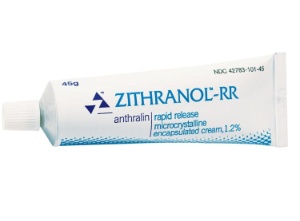
Picture 3 – Zithranol-RR used for Psoriasis Treatment
Source – piercemattiepublicrelations
It contains anthralin, which is a synthetic compound acting as a substitute for chrysarobin. It is helpful in the treatment of psoriasis by helping to reduce the rapid skin cell growth. Using the same for plaque psoriasis treatment has no such strong side-effects except for causing skin irritation, staining light-colored hair as well as clothes and linens.
Topical Steroids
Steroids are the most commonly used medication for the topical treatment of psoriasis. This is simply because the corticosteroid hormones released by the adrenal glands perform several vital functions in the body, such as controlling and reducing inflammations as well as lesions. Steroids vary on their potency level and it depends on the severity of the disease that super potent or least potent steroids may be prescribed.
But there are certain precautions that one needs to bear in mind while using steroids. They may be elucidated as the follows:-
- Only after consulting a doctor, must one start off by applying a small amount of steroid on the areas affected.
- Topical steroids must not be used for a longer duration of more than 3 weeks without consulting the doctor.
- One must refrain from abruptly withdrawing corticosteroids as it may cause an aggressive recurrence of psoriasis. This is known as the rebound of the psoriatic condition.
- There are ophthalmic risks associated with the use of steroids such as the occurrence of cataract and glaucoma. So one must not use steroids in or around the eyes unless it is formulated for the eyes.
- Super potent steroids may be helpful in healing psoriasis but is latently inherent with strong and harmful side-effects.
- Similarly, low potent steroids may be useful in case of psoriasis face treatment as well as groin and breast treatment. But one must be careful as not to use them on sensitive areas of the skin such as the armpits, the genitals, etc.
Mild steroids are used in case of psoriasis treatment for children. The possible harm that topical steroids can cause is change of skin pigment, skin thinning, and formation of stretch marks, skin bruising, and the reddening and dilation of blood vessels. Super potent steroids can even affect the internal organs if applied to a large area of the skin surface or if used for a long period of time. Using it with excessive occlusion may prove more harmful for those already suffering from psoriasis.
Phototherapy for Psoriasis
An intelligent mind, Niels Finsen discovered the therapeutic effects of the rays of the sun for the benefit of treating various human diseases. This method of treating and curing diseases using UV rays of the sun is known as Phototherapy. This method when applied to the treatment of psoriasis is known as psoriasis light treatment or UV treatment for psoriasis.
The method of UV psoriasis treatment involves the deliberate exposure of the skin to sunlight. Sunlight emits rays of different wavelengths which are divided into UVA, UVB and UVC. This division is based on the size of the spectrum of light that is emitted by each. Among them, UVB is considered to be the best treatment for psoriasis in the field of psoriasis light treatment.
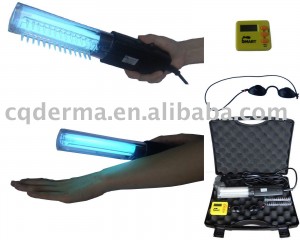
Picture 4 – Psoriasis Phototherapy
Source – aliimg
Psoriasis UVB Treatment
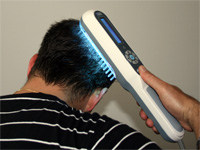
Picture 5 – UVB Lamp used for Psoriasis Treatment
Source – virtuavia
The psoriasis light treatment in this case involves the exposure of the skin to an artificial UVB source of light. There are basically two types of UVB lamps; broadband UVB and narrowband UVB. The erythemal qualities of UVB broadband are considerably greater than the UVB narrowband and this is the reason the latter is considered much safer for psoriatic patients.
The UVB treatment helps in reducing the excessive growth of skin cells by letting the UVB light to penetrate through the skin of the affected area. The UVB treatment is administered both as medical as well as home psoriasis treatment.
During the initials of the treatment, the condition caused by psoriasis may worsen but the temporary deterioration may be a sign of future improvement. The initial problem that one may face from is the reddening, the itching and the occurrence of skin flares for being exposed to UV rays. So the amount of the administration of the UVB light rays may have to be induced or reduced to be compatible with the condition and the requirement of the patient.
The UVB light treatment can also serve as an economically viable and convenient home psoriasis treatment. This kind of treatment usually proceeds from medical treatment to treatment at home to maintain its consistency. All such home treatments for psoriasis require the aid and advice of a registered health professional. It also needs one to follow the advice of the doctor strictly so as to avoid any possibility of worsening the psoriasis condition. Home treatment also comes with the advantage of being insured by various companies which cover up the cost of home UVB equipment. For the success of the home treatment, one must always go for regular health check-ups and must abide by the dictates of the health professional who’s supposed to monitor the psoriatic condition.
Psoriasis UVA Treatment or Photo Chemotherapy
UVA psoriasis treatment has to be coupled with a topical medication called Psoralen which is sensitive to light in order to prove effective for the treatment of psoriasis. This kind of a combination of UV ray and topical treatment is nicknamed as PUVA. This treatment inhibits the excessive growth of skin cells and is effective in case of psoriasis symptoms treatment. It has also been found to be highly efficient in case of guttate and plaque psoriasis treatment as well as for nail, palm and soul psoriasis treatment.
However, there are certain side-effects that this kind of treatment of sun exposure may cause which includes a feeling of nausea, the turning of the skin pigment to red, itching and swelling. One may also suffer from headache, fatigue and a burning sensation of the skin area. Milk and ginger have certain qualities which may help to prevent nausea when one is administered psoralen orally. Itching can be tackled with the help of antihistamines, bathing in water mixed with colloidal oatmeal products and resorting to topical medications containing capsaicin. Similarly, wearing a support hose while receiving PUVA treatment may prevent the swelling of the legs. The long term impacts of photo chemotherapy may be squamous cell carcinoma, i.e. a form of skin cancer.
A psoriasis holistic treatment is actually a combination of UV treatment with topical or systemic treatment and is mostly adopted in hospitals.
Psoriasis Laser Treatment
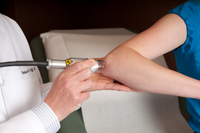
Picture 6 – Psoriasis Laser Treatment
Source – dermatologyinc
The laser treatment for psoriasis may have been approved by the FDA but is usually not recommended by doctors except for extreme cases due to its strong harmful effects. Primarily there are two types of laser treatments available for treating psoriasis.
The pulsed dye laser treatment is suited for chronic cases of psoriasis. It also forms a part of plaque psoriasis treatment. The basic motive of the rays of this treatment is the destruction or the rupture of tiny blood vessels which form psoriasis lesions. The duration of the administration of this treatment extends from 15-30 minutes per session at an interval of every 3 weeks. An early response to the treatment may just require 4 to 6 sessions for a smooth clearance. Side-effects of this treatment include bruising and scarring.
The excimer laser treatment is also helpful for treating chronic, localized psoriasis plaques. It is associated with the use of a high-intensity UVB beam which is directed towards the area affected by psoriasis. The amount of ray administered depends on the severity of the disease ranging from 4 to 10 sessions per month with at least 2 sessions per week with a gap of 2 days between each session. The two brands presently providing this treatment are the Xtrac and the Xtrac Velocity.
Systemic Psoriasis Treatment
The systemic treatment for psoriasis includes the process of internal medication by either injecting into the body or by the intake of pills orally. This kind of treatment is undertaken only when the patient does not respond to either topical treatment, phototherapy or photo chemotherapy. It is effective in the case of patients suffering from moderate to severe psoriasis. The systemic treatment is also applicable for psoriasis arthritis treatment. Since the medications prescribed in case of this kind of treatment is usually toxic in nature, one needs to undergo liver function and blood tests on a more or less regular basis.
There are basically two types of systemic treatment for psoriasis; namely, the traditional systemic treatment and the biologic.
Traditional Systemic Treatment
Within the category of traditional systemic treatment, fall acetretin or soriatane, cyclosporine, methotrexate and other off-label systemic.
Soriatane is a retinoid which is a synthetic form of Vitamin A. It helps in controlling the over multiplication of cells. It is mostly used in the treatment for erythodermic, palmoplantar, pustular, plaque and guttate psoriasis. However, one needs to be careful of the side-effects that it may cause such as serious birth defects. For this reason pregnant women must refrain from its use.
Cyclosporine is an immunosuppressant drug that is used for treating the case of severe psoriasis. It is available in both in liquid and capsule form. Its primary function is to suppress the immune system and slow down the pace of the growth of certain immune cells. The unabated use of this drug can cause high blood pressure, high cholesterol levels, kidney damage and even skin cancer. So, one must always take it under the supervision of a doctor so as to avoid its damaging effects.
Methotrexate is also an immunosuppressant drug that is prescribed for severe psoriasis. It stops the over production of skin cells by binding and inhibiting an enzyme which causes excessive cell multiplication. One cannot ignore the side-effects which it may cause such as liver damage, kidney damage; bone marrow toxicity, lymphoma, and reduced WBC count.
Those systemic medications which are not approved by the FDA are usually regarded as ‘off-level’ medications by the doctors. To name a few, we have anti metabolites such as mercaptopurine, tioguanine and fluorouracil; cytotoxic agents such as paclitaxel and hydroxyurea; alkylating agents such as cyclophophamide and chlorambucil; immunosuppressant such as azathioprine, oral tacrolimus, mycophenolate mofetil; and some DMARDs namely dapsone, sulfasalazine and colchicines. Along with these, insulin-sensitizing drugs such as pioglitazone, rosiglitazone,; and other drugs such as bromocroptine, simvastatin, somatostatin, etc. are helpful in psoriasis treatment. Antihistamines are helpful in reducing itching and other allergic problems. Antidepressants also prove helpful for treatment of psoriasis due to their anti-itch itching and sleep inducing qualities. Besides these, NSAID drugs help to provide relief from psoriasis pain and swelling.
Biologic Drugs
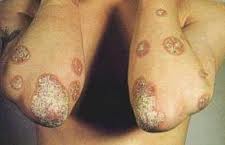
Picture 7 – Psoriasis
Source – google
Biologic drugs from a part of the new psoriasis treatment. Studies have proved their efficacy mostly in the field of psoriasis and psoriasis arthritis treatment. They are administered either by injecting or by intravenous infusion (IV). A biologic is actually a protein derivative of living cells that specifically target parts of the immune system causing psoriasis. The mechanism of their function depends on their ability to block the action of T-cell, which is actually a specific type of immune cell associated with causing psoriasis. Biologics Amevive and Raptiva perform this function of blocking T-cells. Biologics which act as tumor necrosis factor-alpha (TNF-alpha) blockers are Remicade, Simponi, Enbrel, and Humira. Stelara act as protein blockers by targeting the cytokines Interleukin 12 and 23 that are believed to promote psoriasis. The possible side-effects of this treatment are respiratory infections, flu-like symptoms, nervous problem, blood disorders and cancer.
Alternative Psoriasis Treatment
There are several other alternative measures to treat psoriasis beyond the conventional ones. One such alternative treatment is Climatotherapy which rests on the belief that certain climactic conditions are suitable for the healing and cure of certain diseases. On this logic is the Dead Sea psoriasis treatment based, as the Dead Sea is supposed to have qualities to heal many a skin diseases.
Another kind of treatment is known as ichthyotherapy. It involves the encouragement of the fishes to feed on the psoriasis affected areas which helps in providing a temporary relief from psoriasis symptoms and effects. It is practiced at spas in countries like Hungary, Croatia, Turkey and others. This kind of treatment is also known as psoriasis fish treatment.
Oregon-grape proves effective in the treatment of psoriasis and eczema.
Tanning beds are also used as an alternative psoriasis therapy but they have very harmful side-effects.
Studies indicate that changes in diet and lifestyle determine the condition of psoriasis to a great extent. So, one needs to follow the psoriasis treatment diet chart which must go hand in hand with the treatment so as to get relief from this painful and irritating disease which can precipitate to cause life threatening diseases such as skin cancer if not treated well.
Reference :
http://www.medicinenet.com/psoriasis/article.htm
http://www.mayoclinic.com/health/psoriasis/DS00193/DSECTION=treatments-and-drugs

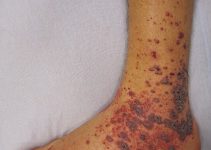
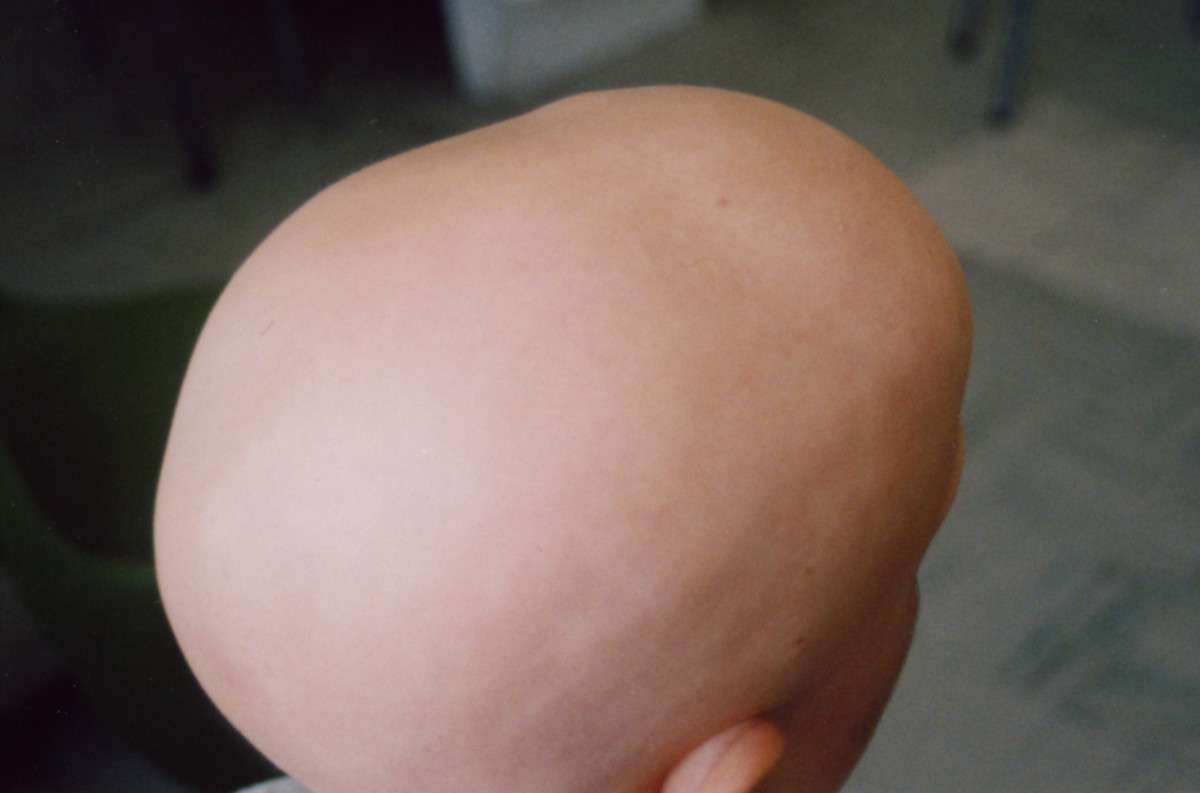
Hello,
Thanks for this page about Psoriasis.
I have been mainly interested in Psoriasis UVB Treatment.
It works well with me.
I bought an UVB lamp to VirtuaVia after I read your post about UVB lamp therapy.
But I had to search a while to find it.
So here is the link for all people that have Psoriasis, it may help you so I post it here :
http://www.Psoriasis-UVB.com